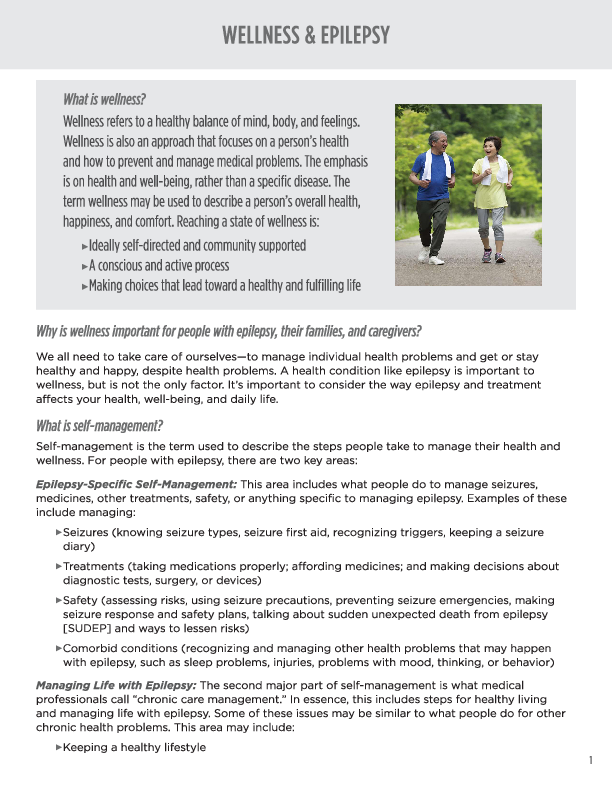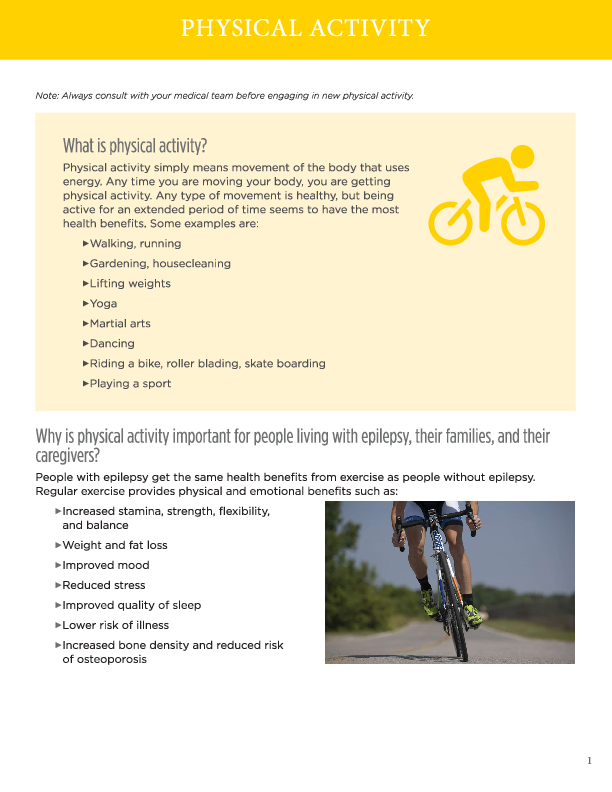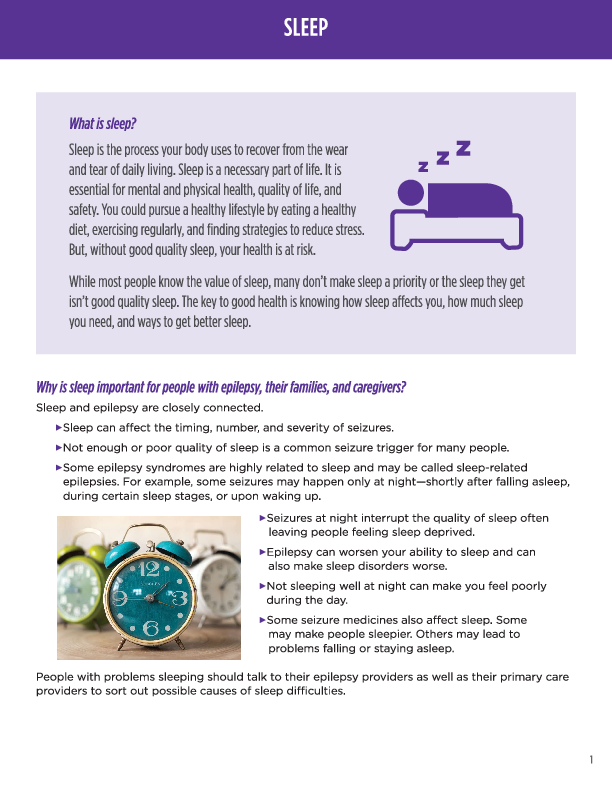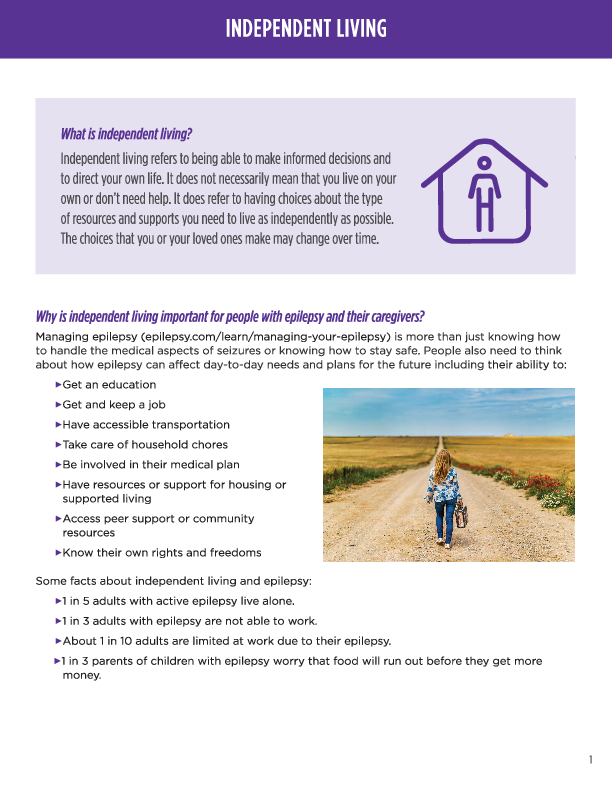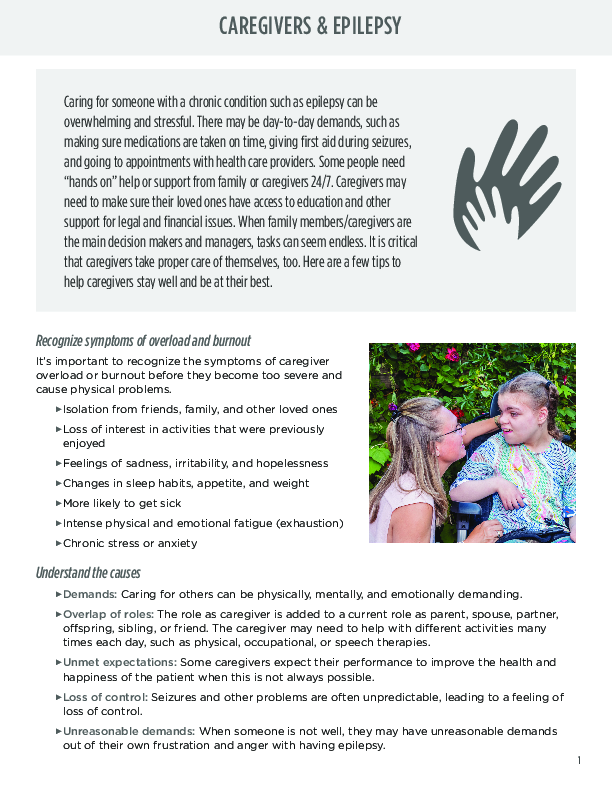Wellness Support Tools

Download the Entire Wellness Toolkit
We all need to take care of ourselves — to manage individual health problems and get or stay healthy and happy. This toolkit highlights and explains the the significance of each of the eight dimensions of wellness and the importance of making choices that lead toward a healthy and fulfilling life.
Download Individual Factsheets from the Wellness Toolkit
Wellness Overview
Whether you are a person living with epilepsy, a caregiver, or a medical professional, it is important to consider the way epilepsy and treatments affect one's health, well-being, and daily life. Download this factsheet that explains what the term wellness means and how to set S.M.A.R.T. goals to make changes for the better.
Emotional Health
Emotional health involves being aware of your feelings, mood, and behavior. Recognizing and discussing changes in emotional health with a health care professional is an important step toward improving one's overall wellness. Download this factsheet to find ways people living with epilepsy and caregivers can learn how to manage their emotional health.
Diet and Nutrition
Download this factsheet that covers general information about diet and nutrition, what it means to eat healthy, and the importance of working with one's health care team before making any major changes to their diet.
Physical Activity
In addition to the benefits exercise brings to people without epilepsy, physical activity may help with seizure control, reducing side effects from seizure medications, and overall quality of life. Download this factsheet that covers the importance of physical activity, exercise safety, and how to get started.
Sleep
Sleep and epilepsy are closely connected. Not getting enough sleep can trigger, increase, and prolong seizures, or make it difficult to care for someone else's wellbeing. Download this factsheet to learn about the importance of enough sleep for people living with epilepsy and their caregivers and find tips for getting a better night's rest.
Stress Management
Stress is the way one's body responds to positive and negative physical, emotional, or environmental changes. For many people living with epilepsy, stress can trigger seizures. Having seizures can also result in feeling stressed. Download this factsheet that discusses strategies one can try to manage stress and why stress management is important for people living with epilepsy and their caregivers.
Social Relationships
Download this factsheet that has tips for finding social networks, talking about epilepsy with friends or peers, and maintaining healthy relationships between caregivers and people living with epilepsy.
Education and Employment
Sometimes seizures can interfere with a person's ability to work, learn, and remember, making it difficult to find or keep a job or succeed in school. Download this factsheet that has resources and information about the legal rights of students and employees living with epilepsy.
Independent Living
Independent living refers to being able to make informed decisions and to direct one's own life. Managing epilepsy is more than just knowing how to handle the medical aspects of seizures or knowing how to stay safe. Download this factsheet that covers how one's ability to live independently is determined, housing options for people who cannot live alone, and ways to improve one's ability to live independently.
Wellness for Caregivers
Caring for someone with a chronic condition such as epilepsy can be overwhelming and stressful. It can be easy to forget about one's own wellbeing while caring for another. It is important that caregivers remember to take proper care of themselves to stay well and be at their best. Download this factsheet that gives caregivers tips on maintaining their own wellness while also caring for someone else.
Resources
Epilepsy Centers
Epilepsy centers provide you with a team of specialists to help you diagnose your epilepsy and explore treatment options.
Epilepsy Medication
Find in-depth information on anti-seizure medications so you know what to ask your doctor.
Epilepsy and Seizures 24/7 Helpline
Call our Epilepsy and Seizures 24/7 Helpline and talk with an epilepsy information specialist or submit a question online.
Tools & Resources
Get information, tips, and more to help you manage your epilepsy.


